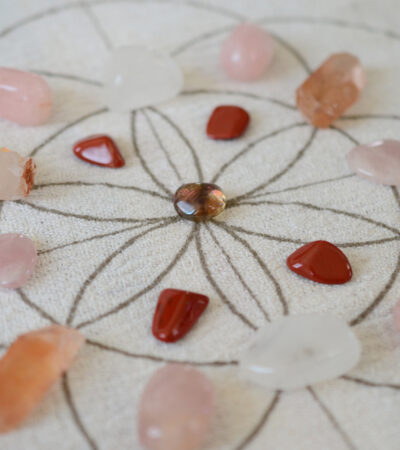Our Midlife writer, Nicola, is back with another incredibly relatable (and hopefully helpful!) article on midlife overwhelm and how you can take back the wheel as you navigate this busy chapter of life.
It’s 3am and my mind is racing – what day was that hospital appointment? Did I put it in the family diary? Does it clash with football training? Who is doing school pick up? Did I save my notes for the new client zoom tomorrow morning and so it goes on … I only got up for a pee and now find myself in a state of high alert with no chance of going back to sleep.
Overwhelm is not new, and it certainly isn’t solely the preserve of midlifers, but combine it with fluctuating hormones, careers, running businesses, add a sprinkling of elderly parents and a garnish of young children or in my case, teens, and you have quite a potent cocktail.
The midlife sandwich
I spoke to several midlife chums on the subject and found that I am definitely not alone, midlife overwhelm is a growing issue. For some, the covid lockdowns provided a moment to press “pause” on the world and the noise, they used it to consider their lifestyles, career paths and identify what they really want to be doing. For others, like me, the lockdowns were a haze of homeschooling, looking after the needs of elderly parents and trying to keep a business afloat.
In my experience, anxiety and overwhelm in midlife are one of the trickier symptoms of menopause to manage – our hormones are in disarray, and we find ourselves the meat in the sandwich of life, neatly placed between elderly parents and youngish children. I wake with a feeling of dread most mornings wondering “what will happen today” subtext: what will I forget, cock up, stick my metaphorical foot in?
Jo Glynn Smith is a transformation coach who sees lots of midlifers struggling with this issue, she says “Midlife anxiety and pressure is normal as at this stage in our lives as we are managing multiple, very grown up, responsibilities such as teenage kids, ageing parents, greater financial pressures, senior jobs, relationships etc as well as our hormone changes. What puts more pressure on us these days, versus 20 years ago, is the added social media pressure of comparison culture which fuels our insecurities and sadly enforces those feelings of ’I’m not doing well enough’, or ‘I should be doing better”
What the experts say
Hormone fluctuations can play havoc with our mental balance, it can make things that you would have managed easily in your 30’s, feel that little bit harder in your 40s and 50s. I have good friends who left jobs and careers they were thriving in because they felt they weren’t up to it anymore – it can chip away at your self-confidence, leaving you with a lack of motivation, lack of energy, loss of interest in day to day activities which in turn can lead to a quiet withdrawal from life and a disconnect from friends. Even driving at night or deciding what to cook for dinner can seem daunting. In her book “The perimenopause solution” co-written with nutritionist Emma Bardwell, Dr Shahzadi Harper says “in early perimenopause, women tend to attribute their mental health concerns to a stressful job, a difficult relationship, ill parents or teenage children. You would feel far more resilient and able to cope with everyday stresses if you weren’t enduring the hormonal changes caused by perimenopause at the same time” she recommends that diet, exercise, and stress management should all play a part in parallel with any medical intervention.
Take action
If you are feeling that something might be off, take control – could it be perimenopause? Familiarise yourself with the symptoms – get a blood test to assess your hormone levels, and your FSH (follicle stimulating hormone) a high level can be an indicator of perimenopause but also be aware that some conditions can mimic perimenopause such as nutritional deficiencies: iron and vitamin D levels for example, thyroid disorders and chronic fatigue which are all more prevalent in midlife. but as Dr Harper and Emma Bardwell are keen to point out, “it’s not about the numbers, it’s about how you feel- levels can vary day to day, it is about you and your symptoms”
Diet in Midlife
Gut health is something that I have become increasingly interested in since entering perimenopause and I can tell you I can really feel the difference mentally. Emma Bardwell, registered nutritionist, says “food is fundamental to our physical and emotional wellbeing” she recognises that when we are feeling overwhelmed or low, our instinct is to reach for chocolate or a glass of wine which are all high in sugar. Choose nutrient-dense foods instead, such as legumes (lentils, chickpeas etc) nuts, seeds, green leafy veg and fermented foods (sauerkraut, kefir) which are all known to have mood-boosting properties and if you must, reach for dark chocolate to get through the extra tricky patches! We all need a treat now and again.
Exercise in Midlife
Exercise has become part of my routine – I plan my workouts into my weekly diary so there is no excuse! I aim for 3 times a week and more if I can, but I find it really helps calm the emotional noise. The benefits of exercise in midlife are many, from increased metabolism to better sleep and improved mental health and the best thing about it – it’s never too late to start! I do a mix of weights, great for bone health and muscle mass, cardio or HIIT (high-intensity interval training), for fat burning and yoga/pilates for strength, flexibility, and relaxation.
Therapy to navigate Midlife
If you are being pulled in different directions by parents, kids and work, Jo Glynn Smith advises seeing a coach to work on boundaries, and to explore why pleasing others is a priority for that person versus looking after themselves.
Setting boundaries enables one to say “no”, nicely but firmly and mean it and helps us avoid taking on too much –definitely a skill to master and good to have in your midlife tool kit. She recommends being present in the moment – if you are out for lunch with a friend – be there 100%, don’t be worrying about emails piling up or the dry cleaning you haven’t picked up – watch your son play football and be there, in the moment. Get those positive thoughts flowing by practising gratitude – this can be as simple as saying: I am happy that ‘enter happy thought here’ every morning before starting your day.
When you find worry is running away with you, think about what you can control, and deal with what is in front of you – deal with facts, not thoughts and take action – it will make you feel more in control.
When the going gets tough, these little tips can help:
- A bit of self-care goes a long way – run a bath, use that decadent bath milk… I love Weleda and their Lavender bath milk is wonderful and relaxing. Pop on a face mask for optimum relaxation try the Evolve bio retinol gold mask for tired skin – which plumps, smooths and evens skin tone
- Improve sleep quality I recently tried the Subtle energies patches for sleep and focus – they were brilliant and I slept like a baby I also love Voya pillow spray which smells divine
- Magnesium – I swear by taking magnesium at night – it helps relax me I take this one from nutritionist Emma Ellice Flint but Beauty Pie also do a good one
- Movement – if the gym isn’t your thing, throw on a club anthem and dance in your kitchen – it amps up the endorphins and gets the heart rate up!
words by Nicola De Burlet
@silverstylepages














